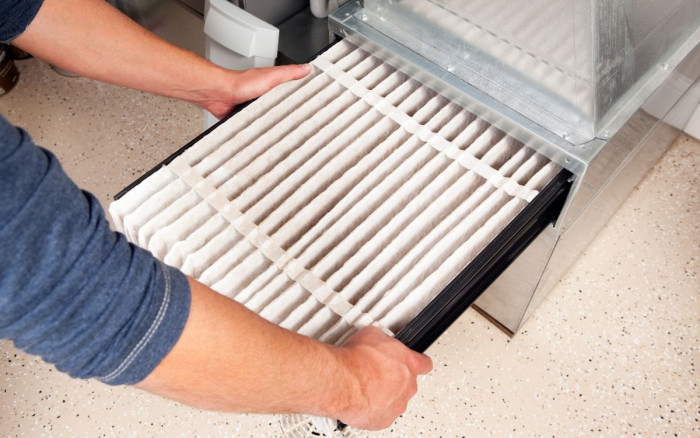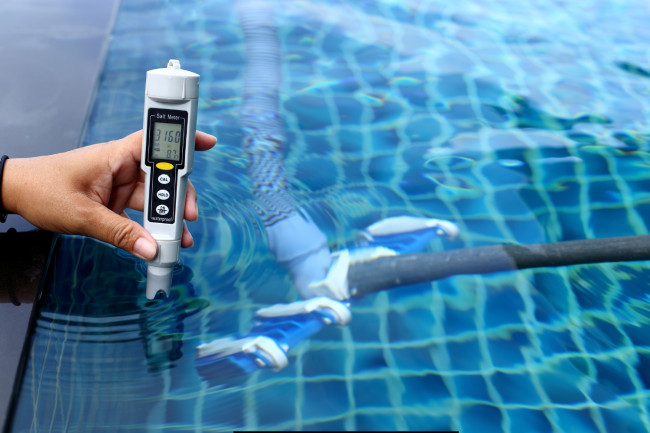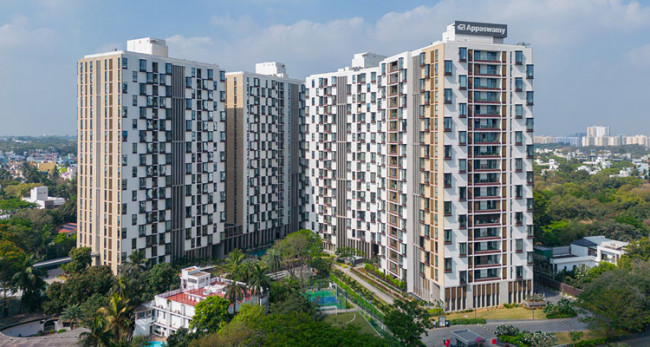When it comes to choosing air filters in bulk, understanding the intricacies of Minimum Efficiency Reporting Value (MERV) ratings is crucial. In this comprehensive guide, we will delve into the significance of MERV ratings, particularly in the context of the common 14x20x1 air filter size. By gaining insights into MERV ratings, consumers can make informed decisions, ensuring optimal performance and air quality in HVAC systems.
Introduction to MERV Ratings
MERV ratings serve as a standardized measure of an air filter's efficiency in capturing and retaining airborne particles. Ranging from 1 to 20, the MERV scale classifies filters based on their ability to remove particles of different sizes. The higher the MERV rating, the finer the particles the filter can trap.
Understanding MERV Ratings in Detail
- MERV 1-4: Filters in this range offer basic protection by capturing larger particles like dust, pollen, and lint. While they provide minimal filtration, they may not be suitable for those with allergies or respiratory concerns.
- MERV 5-8: Filters within this range offer a moderate level of filtration, capturing smaller particles like mold spores and pet dander. They are suitable for residential and light commercial applications.
- MERV 9-12: Filters in this range provide a higher level of efficiency, capturing finer particles such as bacteria and smoke. They are suitable for residential spaces, hospitals, and commercial buildings with specific air quality requirements.
- MERV 13-16: Filters in this higher range offer excellent filtration capabilities, removing particles like viruses and fine dust. They are commonly used in hospitals, laboratories, and environments demanding superior air quality.
- MERV 17-20: Filters in this elite range provide the highest level of filtration, suitable for critical environments like cleanrooms and pharmaceutical manufacturing facilities.

Selecting MERV Ratings for 14x20x1 Air Filter Bulk Purchases
- Consider the Application:The choice of MERV rating should align with the specific application. For residential spaces, a MERV rating between 8 and 12 is typically sufficient. Commercial spaces with higher air quality requirements may benefit from MERV ratings between 13 and 16.
- Balancing Filtration and Airflow: While higher MERV ratings offer superior filtration, they can also impact airflow. It's essential to strike a balance between filtration efficiency and maintaining optimal airflow within the HVAC system.
- Allergies and Respiratory Concerns: Individuals with allergies or respiratory conditions benefit from higher MERV ratings, as these filters effectively capture allergens and airborne irritants. Consider MERV ratings in the range of 11 to 16 for such applications.
- System Compatibility: Ensure that the selected MERV rating is compatible with the HVAC system. Some systems may have limitations on the pressure drop associated with higher MERV-rated filters, potentially requiring system modifications.
Impact of MERV Ratings on Air Quality
- Particle Removal Efficiency: The primary role of air filters is to remove particles from the air. Higher MERV-rated filters excel at capturing smaller particles, contributing to improved indoor air quality.
- Allergen Control: Filters with MERV ratings tailored for allergen control effectively capture and prevent the circulation of particles that trigger allergies, providing a healthier living or working environment.
- Bacteria and Virus Filtration: Higher MERV ratings are instrumental in filtering out smaller particles, including bacteria and viruses. This is especially significant in situations where keeping the environment sterile is essential.
Practical Considerations for Purchasing 14x20x1 Air Filter Bulk
- Cost Consideration: Higher MERV-rated filters generally come at a higher cost. Evaluate the budget constraints and strike a balance between filtration efficiency and cost-effectiveness.
- Replacement Frequency: Filters with higher MERV ratings may require more frequent replacements due to increased particle accumulation. Consider the maintenance schedule that aligns with the selected MERV rating.
- Consultation with HVAC Professionals: Seek advice from HVAC professionals when selecting air filters in bulk, especially if considering a higher MERV rating. They can provide insights into system compatibility and potential modifications required.
Benefits of Choosing the Right MERV Rating for 14x20x1 Air Filter Bulk Purchases
- Optimal Filtration Efficiency: Selecting the right MERV rating ensures that the air filter effectively captures particles relevant to the specific application, providing optimal filtration efficiency.
- Improved Indoor Air Quality: Proper filtration, facilitated by the right MERV rating, contributes to improved indoor air quality. This is essential for the health and well-being of occupants in residential and commercial spaces.
- Extended HVAC System Lifespan: By preventing the accumulation of particles within the HVAC system, the right MERV-rated filters contribute to the longevity of system components, reducing the risk of premature wear and tear.
Factors Influencing MERV Rating Selection for 14x20x1 Air Filters
- Consider the Specific Environment: When choosing MERV ratings for 14x20x1 air filter bulk purchases, consider the specific environment where the filters will be deployed. Different spaces have varying air quality needs, and tailoring the MERV rating to the environment is crucial for optimal performance.
- Occupancy and Traffic: Spaces with high occupancy or heavy foot traffic, such as offices, schools, or shopping malls, may benefit from higher MERV ratings. These ratings help manage the increased particle load resulting from more people and activities.
- Healthcare and Cleanroom Environments: Healthcare facilities, laboratories, and cleanrooms require meticulous air quality control. In these settings, higher MERV-rated filters (13 and above) are often necessary to ensure the removal of microorganisms and contaminants.
- Residential Considerations: For residential applications, the MERV rating should strike a balance between efficient filtration and minimal airflow resistance. Ratings between 8 and 12 are generally suitable for homes, offering effective particle removal without compromising system performance.
Practical Tips for MERV Rating Selection and Bulk Purchases
- Evaluate Filtration Needs: Clearly define the filtration needs of the space. If the primary concern is allergen control, a MERV rating in the mid-range (10-13) may be sufficient. For environments requiring superior air quality, such as hospitals, higher ratings (14-16) may be necessary.
- System Compatibility Assessment: Before finalizing bulk air filter purchases, assess the compatibility of the chosen MERV rating with the HVAC system. Some systems may have limitations on pressure drop or airflow resistance, especially with higher-rated filters.
- Understand Pressure Drop: Higher MERV-rated filters often result in increased pressure drop, which is the resistance the filter introduces to the airflow. It's essential to understand this dynamic and ensure that the HVAC system can accommodate the chosen MERV rating without compromising efficiency.
- Regular Monitoring and Replacement: Regardless of the chosen MERV rating, consistent monitoring and timely replacement are critical. Set up a routine maintenance schedule to replace filters promptly, ensuring continuous efficiency and performance.
Educating Consumers on MERV Ratings
- Consumer Awareness Programs: Manufacturers and suppliers can play a crucial role in educating consumers about the significance of MERV ratings. Conducting awareness programs and providing easily understandable resources can empower consumers to make informed choices.
- Clear Labeling and Information: Ensure that air filters come with clear and informative labeling regarding their MERV rating. This transparency helps consumers make quick and accurate decisions based on their specific filtration requirements.
- Online Resources and Support: Offer online resources, guides, and customer support to assist consumers in understanding and selecting the right MERV rating for their needs. Providing easily accessible information can simplify the decision-making process.
Balancing Filtration Efficiency and Cost-Effectiveness
- Cost-Effective Solutions: While higher MERV ratings offer superior filtration, they come at a higher cost. Manufacturers and suppliers can work on developing cost-effective solutions that balance efficiency and affordability, making advanced filtration accessible to a broader consumer base.
- Promoting Energy Efficiency: Highlight the energy efficiency benefits associated with optimal MERV rating selection. Emphasize that choosing the right rating contributes not only to air quality but also to the overall efficiency of HVAC systems, potentially leading to energy savings.
Incorporating Technological Advancements
- Smart Filters and Monitoring Systems: Explore and promote smart filters equipped with monitoring systems. These filters can provide real-time data on air quality and filter efficiency, assisting consumers in making proactive decisions regarding replacements and maintenance.
- Filter Materials Innovation: Invest in research and development to enhance the efficiency of filter materials. Innovations in filter materials can potentially lead to filters with higher MERV ratings that maintain low airflow resistance, providing advanced filtration without compromising system performance.
Empowering Consumers for Informed Decisions
Understanding MERV ratings is fundamental to making informed decisions when purchasing 14x20x1 air filters in bulk. The continuous evolution of HVAC technologies, coupled with consumer education and industry advancements, will contribute to creating a market where consumers can confidently select air filters that align with their unique needs.
As the industry moves forward, collaboration between manufacturers, suppliers, and consumers will play a pivotal role in ensuring that MERV ratings become more accessible and comprehensible. By empowering consumers with the knowledge needed to navigate MERV ratings, the HVAC industry can collectively contribute to healthier indoor environments, energy-efficient systems, and prolonged equipment lifespans.
Conclusion: Informed Choices for Optimal Performance
Understanding MERV ratings is pivotal when purchasing 14x20x1 air filter bulk quantities. The right MERV rating ensures that the filter meets the specific requirements of the application, balancing filtration efficiency, cost considerations, and system compatibility.
Consumers are encouraged to approach the selection process with a nuanced understanding of their needs. Whether for residential or commercial use, the optimal MERV rating can significantly impact the performance of HVAC systems, contributing to cleaner indoor air, energy efficiency, and prolonged system lifespan.
When navigating the multitude of options for 14x20x1 air filter bulk purchases, armed with insights into MERV ratings, consumers can make informed choices that align with their unique requirements, ensuring a healthier and more efficient indoor environment.
















